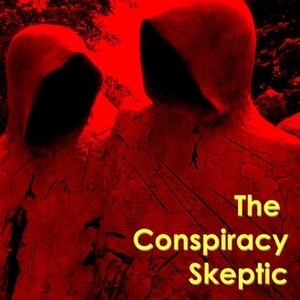Though podcasting has emerged as a home for conspiracy theorists looking for a way to escape moderation on social media platforms, there’s also a growing body of podcasts that are fighting disinformation by dismantling falsehoods and explaining how to avoid being fooled by it in the first place.
Here are some of the best podcast series and individual episodes about conspiracy theories and disinformation that provide high-quality, accurate information, plus some witty banter, on debunking the deception.
‘Rabbit Hole’
The New York Times created “The Rabbit Hole” to talk about the internet’s influence on us. The episodes so far have touched upon YouTube, conspiracy theories, online celebrities and QAnon. NYT columnist and reporter Kevin Roose told Fast Company that he created the podcast hoping listeners will learn that with the internet, “We have choices, and we can shape this thing. In fact, it’s imperative we do shape this thing, because it’s going to shape us if we don’t.”
‘QAnon Anonymous’
Wading into the dubious world of QAnon to understand it can almost be as dangerous as entering into it willingly. The “QAnon Anonymous” podcast researches and distills the latest info on this alt-right conspiracy theory movement and puts all the debunking together for you in tidy audio episodes.
‘The Conspiracy Skeptic’
“The Conspiracy Skeptic” podcast has been around for 13 years and covers a big range of conspiracy theories, old and new. It taps into other podcasts to have their hosts weigh in on everything from Freemasons to JFK. The host, Karl Mamer, is a Canadian, so you get his non-American outlook on some of these very American myths.

‘American Hysteria’
“American Hysteria” is a podcast that focuses on how people in the U.S. get so riled up about everything from video game conspiracies to the origins of charismatic leaders. Podcast host Chelsey Weber-Smith also weaves in her own history of being a conspiracy theorist who is now a “flexible skeptical.”
‘You’re Wrong About’
Journalists Michael Hobbes and Sarah Marshall debunk and clear up misconceptions on a range of topics in the podcast “You’re Wrong About.” Recent episodes related to disinformation and conspiracy theories include “The Anti-Vaccine Movement,” “Losing Relatives to Fox News” and “Wayfair and Human Trafficking Statistics.”
‘Behind the Bastards’
Digging deep into the history of “bad guys” throughout history, “Behind the Bastards” dedicates each episode (and sometimes more than one episode) to infamous and controversial figures, groups and movements. Belarus’ dictator, Jeffrey Epstein and the man who created the lobotomy are all covered, as are Waldorf schools and recent events, like the 2020 Portland uprisings, and a plethora of people wrapped up in conspiracy theories.
‘Science Vs’
“Science Vs” is a Gimlet podcast that uses fact-checking and scientific knowledge to look at things like astrology, CBD and CIA myths. Most recently they’ve delved into fact vs. fiction with the coronavirus, vaccines and related COVID-19 conspiracy theories.
‘There Are No Girls on the Internet’: Disinformed Series
The “There Are No Girls on the Internet” podcast aims to tell the stories of marginalized voices in the internet era. Its “Disinformed” series-within-a-series started after the U.S. Capitol riots and looks at all the bad information out there using the perspective of minority experts.
‘The Anthill’: Expert Guide to Conspiracy Theories
The “Expert Guide to Conspiracy Theories,” a six-part series within The Conversation’s “The Anthill” podcast, is frequently cited as a thorough guide into disinformation. Mashable calls it “your best one-stop-shop” on this topic, using a slew of interviews with academics and experts on conspiracy theories to look at where they originated, how they spread and where they are most effective.
‘Conspiracy’
National Public Radio’s “Throughline” podcast tags itself as a way to “go back in time to understand the present.” It’s May 21, 2020, episode entitled “Conspiracy” spends 42 minutes diving into the origins of conspiracy theories in American history. “Throughline” co-host Ramtin Arablouei picked this episode as a must-listen from the show, saying, “it humbles us and allows us to really understand that all of us are susceptible to the conspiracy-like thinking or believing misinformation.”
This story originally appeared on Simplemost. Checkout Simplemost for additional stories.


